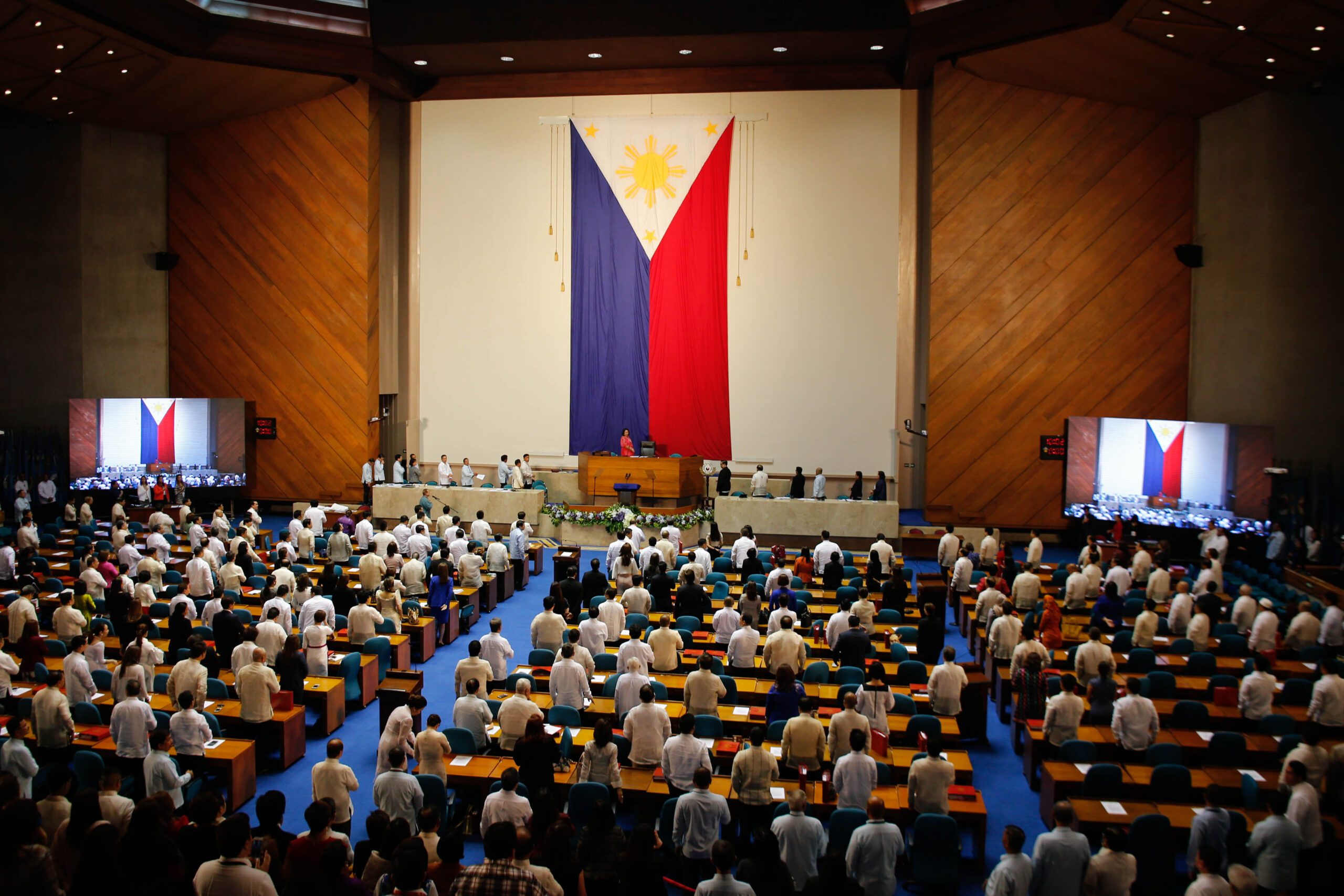SUMMARY
This is AI generated summarization, which may have errors. For context, always refer to the full article.

MANILA, Philippines – The House of Representatives continues to anticipate a shift to federalism by increasing the current number of its deputy speakers from 5 to 12.
According to House Majority Floor Leader Rudy Fariñas, the 12 deputy speakers are being eyed to hail from the 12 possible autonomous regions that would arise should the Philippines become a federal state.
“The matter of increasing the number of deputy speakers was discussed in the majority caucus because the thrust of the Duterte administration is into federalism. We looked at this as a possible creation of states, which we would become our federal states and we came up with 12…. We could try if it is viable to divide ourselves into 12-like states,” Fariñas told reporters.
He revealed that this was initially discussed by the House supermajority during their caucus on Tuesday.
Under federalism, the country will be divided into autonomous states that will be principally responsible over their own laws, finances, development, industries, infrastructure, and culture. The national government will only take care of matters with nationwide bearing.
For Duterte and his allies in the 17th Congress, federalism is the answer to decentralize power and wealth from “imperial” Manila. (READ: Will federalism address PH woes? Pros and cons of making the shift)
The President also prefers that the 1987 Constitution be amended through a Constituent Assembly, wherein incumbent lawmakers will draft the amendments. (READ: Con-Con won’t guarantee election of ‘right people’ – Alvarez)
Curerntly, the House of Representatives has 5 deputy speakers, all coming from Duterte’s Partido Demokratiko Pilipino-Lakas ng Bayan (PDP-Laban) and the parties that have coalesced with it:
- Ilocos Sur 2nd District Representative Eric Singson (PDP-Laban)
- Negros Occidental 6th District Representative Mercedes Alvarez (Nationalist People’s Coalition)
- Capiz 2nd District Representative Fredenil Castro (National Unity Party)
- Batangas 2nd District Representative Raneo Abu (Nacionalista Party)
- Marikina 2nd District Representative Miro Quimbo (Liberal Party)
They are tasked to assume the powers and responsibilities of House Speaker Pantaleon Alvarez when he is absent or cannot perform his duties on the plenary hall floor.
Under the new setup being eyed by the supermajority, however, the deputy speakers will also be expected to determine the concerns of their respective regions in relation to charter change.
“If we go into Con-Ass, they will be the ones who will help each other. It would be easier to harness the group because the boundaries are clearer,” Fariñas said in Filipino.
The supermajority plans to meet again next week to finalize their plans on the deputy speakerships.
Division of federal states
On Thursday, Fariñas said the House supermajority discussed that areas like Metro Manila, Bicol, and the Southern Tagalog region may already become autonomous states on their own.
Other areas will be grouped into one, like the Ilocos Reion, Cagayan Valley, and the Cordillera Administrative Region becoming the Northern Luzon state.
But the House Majority Floor Leader said a certain region’s capacity to stand on its own will also be considered.
“The thrust of Speaker Alvarez and I think President Duterte as well is that we will not divide based on old political boundaries because there’s apprehension that these states may not survive. So you have to regroup them in such a away that the rich and poor regions will be mixed,” he said. (READ: Federalism will not solve corruption, poverty – lawmaker)
“It is a trial balloon on how we can work. Before you can go on the division of all these boundaries, we will look if this is politically viable,” Fariñas added. – Rappler.com
Add a comment
How does this make you feel?
There are no comments yet. Add your comment to start the conversation.